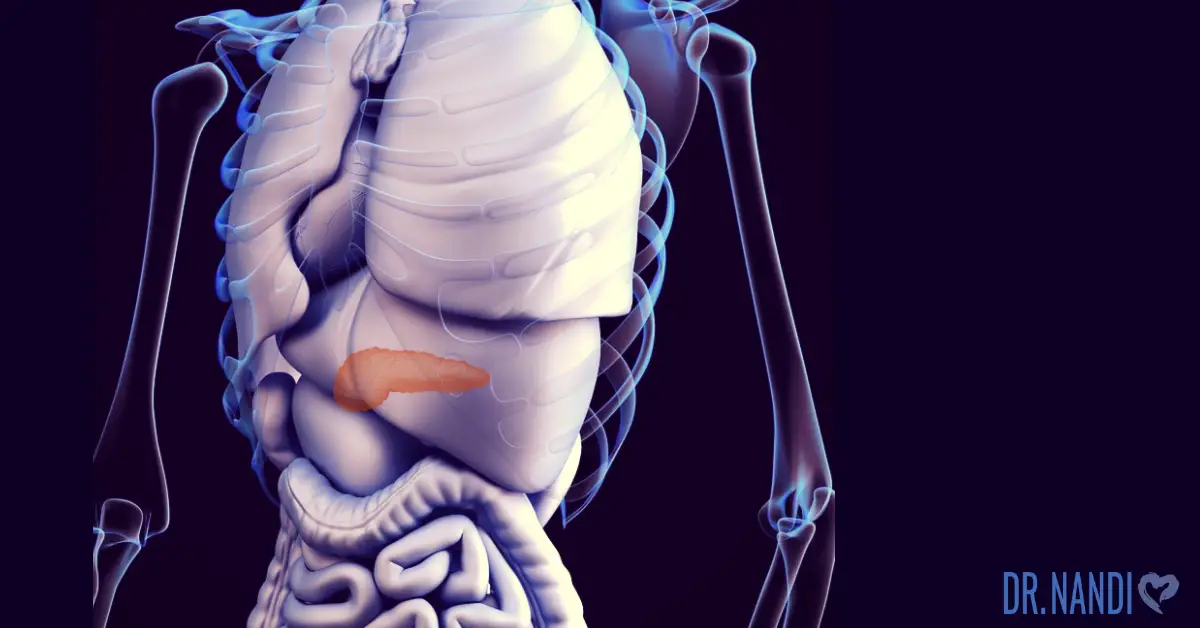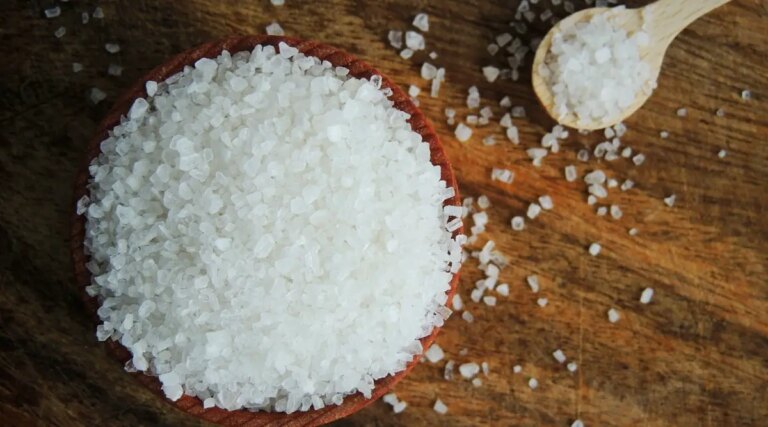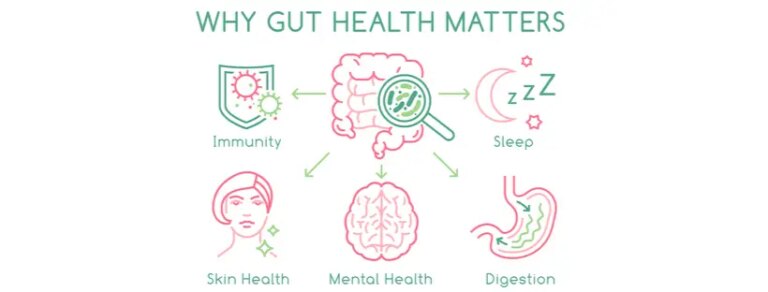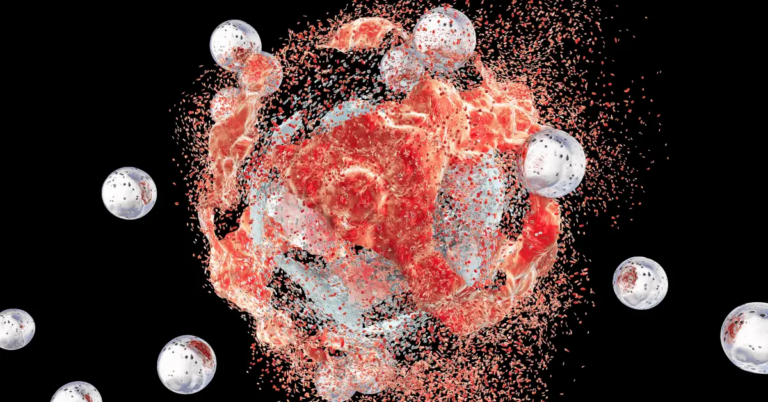What Is Pancreatic Cancer?
Pancreatic cancer originates in the pancreas, a large gland part of the digestive system.
The cells in your body regularly reproduce to replace dying cells. Cancer occurs when those cells are broken and produce faster than they’re supposed to without control. A process called “programmed cell death,” or apoptosis is used by the body to eliminate cells that don’t need to be there. Cancer cells can ignore these signals. If these cells do not die but continue to reproduce, it results in cancer.
Often, cancer cells can break away from the primary cancer site and spread to other parts of the body through blood or other body systems. There, they can start dividing and growing. It is called secondary cancer, and the process is known as metastasis.
Symptoms
Symptoms of pancreatic cancer can be easily mistaken for other illnesses. There are usually few or no symptoms in the early stages, making pancreatic cancer sometimes “silent cancer.” Those that are present can be non-specific and vague. Most of the symptoms of pancreatic cancer are caused by other illnesses rather than cancer, but it’s best to get checked out if you have more than a few of the below:
- Pain in the stomach or back
- Jaundice
- Excessive weight loss
The three above are the most common symptoms of pancreatic cancer. In contrast, the ones below are non-specific to pancreatic cancer.
- Itching
- Bowel changes
- Fever and chills
- Indigestion
Pain in the Stomach or Back
Constant pain in the stomach or back could be indicative of pancreatic cancer. It could also be a symptom of pancreatitis, which, if chronic, can increase the risk of developing pancreatic cancer. Chronic pancreatitis is when the pancreas has become permanently damaged from inflammation and can stop working correctly.
Jaundice
30% of patients will have yellowing of the skin and whites of the eyes when they first go to the doctor. In most cases, there is a blockage in the bile pipe that leads to a build-up of bile in the liver, which can cause a lot of pain and swelling. It manifests itself as the distinctive yellowing of the skin and whites of the eyes. Still, it can also display as dark yellow or orange urine and pale stools. Jaundice alone isn’t usually indicative of pancreatic cancer but should be evaluated by your doctor.
Weight loss
If you quickly lose weight without trying, it could indicate an underlying issue, such as pancreatic cancer.
Who Is At Risk of Developing Pancreatic Cancer?
The risks of developing pancreatic cancer come in two categories: those that can be mitigated and those that you can’t do anything about. The ones you can’t do anything about are factors such as age and genetics, whereas you can alter lifestyle and habits.
Age is a significant contributor to the risk of pancreatic cancer. Almost half of the people diagnosed with pancreatic cancer are over 75. However, it usually affects people between the ages of fifty to eighty.
Having a family history of pancreatic cancer does increase the risk of pancreatic cancer. Occasionally, a faulty gene leads to ‘family cancer syndrome.’ Still, only around 5-10% of pancreatic cancers are caused. Luckily, most people who have a close relative with pancreatic cancer will never develop it themselves. The risk of familial pancreatic cancer increases if relatives were diagnosed under the age of 60, more than two people under 60 with pancreatic cancer, or people with pancreatic cancer in more than one generation on the same side of the family.
The main risk factors for developing pancreatic cancer are:
- Older age
- A personal history of any cancer
- Inherited risk of pancreatic cancer through genetics and family history
- Diabetes
- Obesity
- Drinking alcohol
- Smoking
Decrease The Risk of Developing Pancreatic Cancer
Anything that increases the risk of getting a disease is called a risk factor. This section will look at the risk factors that you have control over and which you can change to lower the risk as much as possible. Unfortunately, avoiding risk factors and increasing protective factors does not guarantee you will not get cancer, but it does reduce the risk.
There are currently studies looking into the different ways to help prevent cancer, looking at the following:
- Changing lifestyle or eating habits.
- Lose weight or maintain a healthy weight.
- Quit smoking.
- Exercise regularly.
- Lower your alcohol consumption.
- Avoiding factors known to cause cancer.
Changing Lifestyle or Eating Habits
Anything that can lower the risk of developing pancreatic cancer is a protective factor. A person can make many lifestyle choices to minimize the risk of developing pancreatic cancer. Lifestyle and habits, on the other hand, can be changed to lessen the risk.
Lose Weight or Maintain a Healthy Weight
Studies have found links between breast cancer and obesity. Therefore, if you are obese, you risk developing pancreatic cancer. Studies have shown that obesity substantially raises the risk of morbidity from many conditions, illnesses, and diseases, including pancreatic cancer. Losing weight and maintaining a healthy weight can help to minimize the risk. Having a healthy diet can also be a protective factor against cancer.
Quit Smoking
Smoking tobacco increases your risk of getting pancreatic cancer. It increases your risk of getting cancer overall. Still, there is also a relationship between the amount smoked and the risk of pancreatic cancer. Poisons used in the manufacture of cigarettes are released when smoked. These poisons can make it harder to kill cancer cells, meaning they can keep growing and replicating without being stopped. The toxins can also cause tumors to be created by damaging the parts of the cells’ DNA that regulate growth. Regardless of whether you smoke, it is never too late to stop smoking, but the sooner you stop, the better the chance your body will have to recover.
Exercise
Regular exercise can help with weight loss, but it can also be a protective factor. Studies show that those participating in higher physical activity levels have a reduced likelihood of developing various cancers compared to those who engage in lower physical activity levels.
Lower Your Alcohol Consumption
Though drinking alcohol regularly usually increases the risk of mouth and throat cancers, studies have shown that drinking so much alcohol increases the risk of pancreatic cancer. Overall, the less alcohol you drink, the lower your cancer risk, including pancreatic cancer.
Avoiding Factors Known to Cause Cancer
Staying away from substances and situations with known cancer risks is a great way to lower the risk of developing pancreatic cancer. The EPA has an extensive list of products that are carcinogenic or capable of causing cancer to humans, and another of those known to be human carcinogens.
Stages of Pancreatic Cancer
Pancreatic cancer, like all cancers, can come in different stages, types, and grades. This severity ranges from Stage 1, which is often precancerous cells, to Stage 4, where pancreatic cancer has spread to other body parts.
Methods For Treating Pancreatic Cancer
Depending on how severe the pancreatic cancer is and wherein the pancreas the tumor is located, the treatment will vary. Doctors will also look at other factors such as your age and general health and fitness before prescribing treatment.
- Surgery to completely remove the cancer is the most effective treatment for early-stage pancreatic cancer that hasn’t spread outside the pancreas. Although this is the best and most effective treatment, cancer could still return. It would then most likely be treated using alternative options. Additionally, like all surgeries, there are risks to having this type of surgery (also known as a Whipple). Having your pancreas removed can cause side effects such as difficulty digesting foods.
- Chemotherapy is the most commonly used treatment for all types of cancer. It utilizes drugs that interfere with a cell’s ability to reproduce. It comes with many side effects and can often make the patient feel sicker while it gets to work.
- Clinical trials can be an option, although they aren’t the first thing a doctor will suggest. They involve using patients for research for better treatments and better surgeries. Because of the experimental nature of these trials, they are often used in cases where no other treatment has been effective.
- Although radiation is linked to cancer, it is also used to treat certain cancers.
Frequently Asked Questions
What does my pancreas do?
Your pancreas is responsible for producing several important hormones, including insulin, which controls the amount of sugar in your blood. It is why issues with the pancreas can lead to diabetes. It also aids in digestion by secreting pancreatic juice containing https://healthheroshop.com/products/digestive-enzymesdigestive enzymes that help food be absorbed more quickly into the small intestine.
How common is pancreatic cancer?
One in 65 people is at risk of developing pancreatic cancer. The American Cancer Society estimates that over twenty-five thousand women and almost twenty-eight thousand men will be diagnosed with pancreatic cancer each year.
Can I get screened for pancreatic cancer?
Unfortunately, there is no screening program available for pancreatic cancer. Researchers are focusing on developing effective ways to screen people who have a higher risk of pancreatic cancer.




















